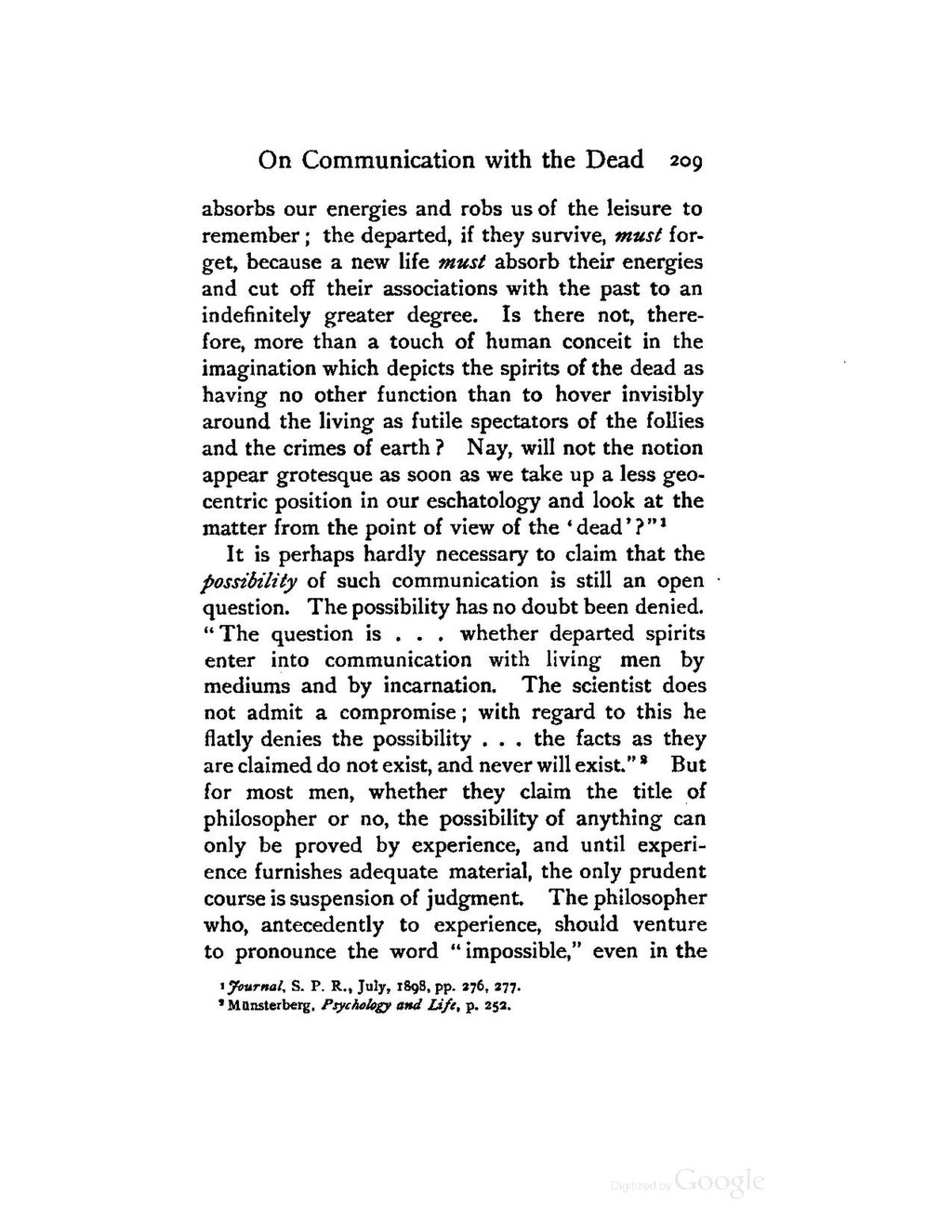absorbs our energies and robs us of the leisure to remember; the departed, if they survive, must forget, because a new life must absorb their energies and cut off their associations with the past to an indefinitely greater degree. Is there not, therefore, more than a touch of human conceit in the imagination which depicts the spirits of the dead as having no other function than to hover invisibly around the living as futile spectators of the follies and the crimes of earth? Nay, will not the notion appear grotesque as soon as we take up a less geocentric position in our eschatology and look at the matter from the point of view of the 'dead'"[1]
It is perhaps hardly necessary to claim that the possibility of such communication is still an open question. The possibility has no doubt been denied. "The question is . . . whether departed spirits enter into communication with living men by mediums and by incarnation. The scientist does not admit a compromise; with regard to this he flatly denies the possibility . . . the facts as they are claimed do not exist, and never will exist."[2] But for most men, whether they claim the title of philosopher or no, the possibility of anything can only be proved by experience, and until experience furnishes adequate material, the only prudent course is suspension of judgment. The philosopher who, antecedently to experience, should venture to pronounce the word "impossible," even in the
